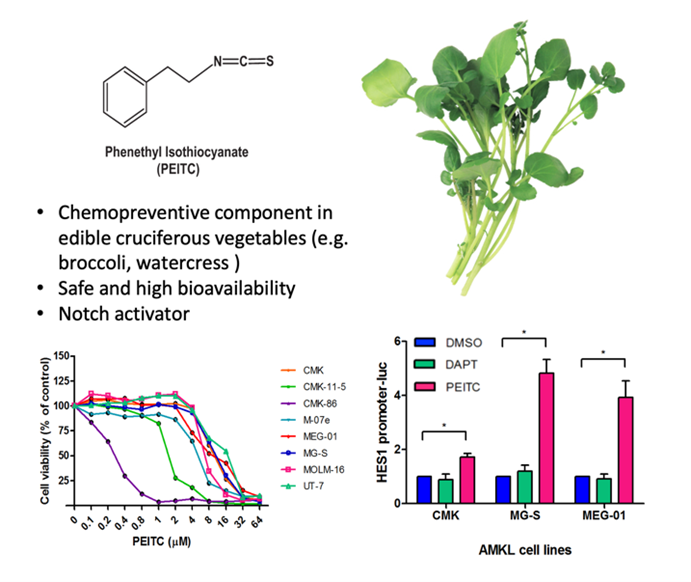- HOME
- News & Events
- Publications
- 【Publications】Activation of NOTCH signaling impedes cell proliferation and survival in acute megakar...
Publications
【Publications】Activation of NOTCH signaling impedes cell proliferation and survival in acute megakaryoblastic leukemia
July 15 2024
Labs: Motomi Osato, Hitoshi Takizawa, Toshio Suda
Paper information
Title:
Activation of NOTCH signaling impedes cell proliferation and survival in acute megakaryoblastic leukemia.
Ong KOK, Mok MMH, Niibori-Nambu A, Du L, Yanagida M, Wang CQ, Bahirvani AG, Chin DWL, Koh CP, Ng KP, Yamashita N, Jacob B, Yokomizo T, Takizawa H, Matsumura T, Suda T, Lau JA, Tan TZ, Mori S, Yang H, Iwasaki M, Minami T, Asou N, Sun QY, Ding LW, Koeffler HP, Tenen DG, Shimizu R, Yamamoto M, Ito Y, Kham SKY, Yeoh AE, Chng WJ, Osato M.
Exp Hematol. 2024 Jun 13:104255. doi: 10.1016/j.exphem.2024.104255.
URL: https://www.exphem.org/article/S0301-472X(24)00114-0/abstract
Highlights
- NOTCH pathway genes are frequently mutated in AMKL.
- Pharmacological NOTCH activation suppresses AMKL cell proliferation.
- Baits in targeted sequencing should be carefully designed for NOTCH pathway genes.
Abstract:
The genetic lesions that drive acute megakaryoblastic leukemia (AMKL) have not been fully elucidated. To search for genetic alterations in AMKL, we performed targeted deep sequencing in 34 AMKL patient samples and 8 AMKL cell lines, and detected frequent genetic mutations in NOTCH pathway, besides previously reported alternations in GATA-1 and JAK-STAT pathway. Pharmacological and genetic NOTCH activation, but not inhibition, significantly suppressed AMKL cell proliferation in both in vitro and in vivo assays employing a patient derived xenograft model. These results suggest that NOTCH inactivation underlies AMKL leukemogenesis and NOTCH activation holds a potential of therapeutic application for AMKL. Children with Down syndrome (DS), the most common congenital disease, have a 500-fold increased risk of developing AMKL. NOTCH activation is achieved by Phenethyl isothiocyanate (PEITC) which is abundant in edible cruciferous vegetables (e.g. broccoli, watercress). More vegetables may reduce the risk of AMKL in DS children.
Graphical abstract

